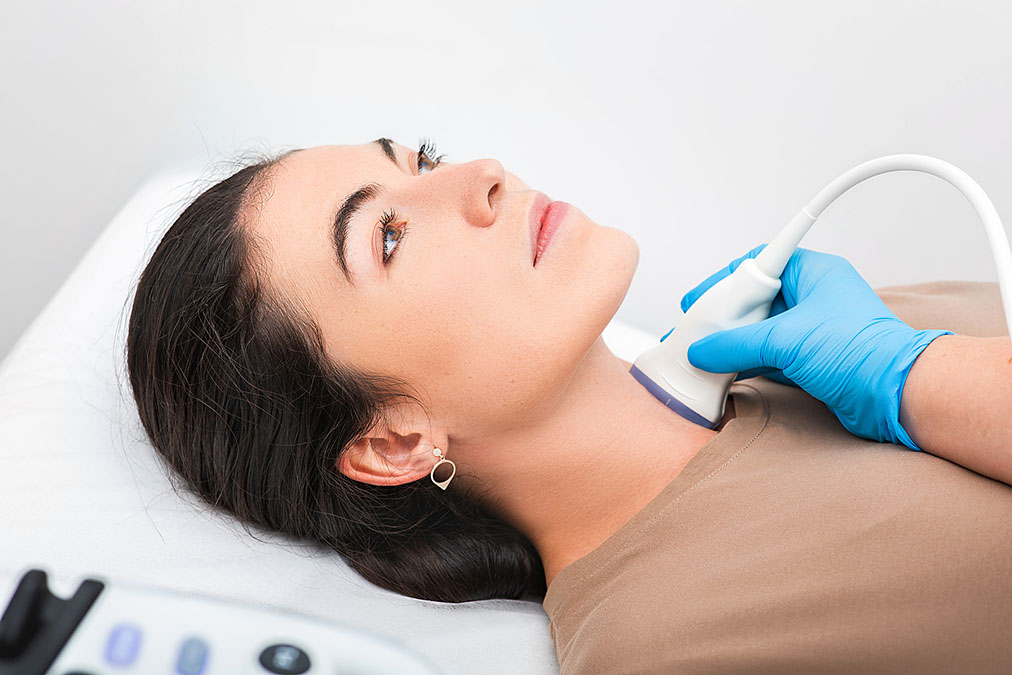 Hypothyroidism doesn’t get better on its own.
Hypothyroidism doesn’t get better on its own.
It almost always gets worse over time, even if you use pharmaceuticals.
Not anymore, according to a new study published in the Suez Canal Veterinary Medical Journal.
The all-important hypothyroidism blood markers improved when their participants took this common herb.
Plus, it’s cheap and available in all pharmacies and online.
So yes, it’s worth trying if you suffer from hypothyroidism.
The researchers used 60 male albino rats, dividing them into six groups to explore the effects of different treatments on hypothyroidism.
The groups were organized as follows:
-
1. The control group received a saline solution.
2. The ashwagandha group received 500 milligrams per kilogram of body weight of ashwagandha root extract, orally, for eight weeks.
3. The levothyroxine group received 20 micrograms per kilogram of body weight of levothyroxine, a typical synthetic hormone treatment for hypothyroidism, for eight weeks.
4. The hypothyroidism group that was induced with hypothyroidism using Propylthiouracil and received no further treatment.
5. The hypothyroidism+ashwagandha group had hypothyroidism and was treated with ARE for four weeks.
6. The hypothyroidism+levothyroxine group had hypothyroidism and was treated with levothyroxine for four weeks.
The researchers checked how these treatments affected various blood parameters, such as red and white blood cell counts and platelet levels—critical indicators of overall health.
This is what they found.
-
1. The rats with hypothyroidism couldn’t make healthy red blood cells and had a shortage of white blood cells, such as lymphocytes and monocytes, which play crucial roles in animal immune systems. They also lacked platelets, which are essential for blood to clot.
2. The ashwagandha and levothyroxine-treated groups showed marked recovery in red and white blood cell counts and platelet levels, showing that both treatments have beneficial effects on blood health in the context of hypothyroidism.
Strangely, the researchers did not test the rats’ thyroid hormones, which is a rather huge oversight in this kind of study.
The improved blood parameters do, however, suggest that ashwagandha can treat many of the worst symptoms of hypothyroidism.
First, since we need healthy red blood cells to distribute iron and oxygen around our bodies, ashwagandha’s ability to repair red blood cells will tackle hypothyroidism symptoms like fatigue, weakness, and cognitive impairment.
Second, since our immune systems need white blood cells to function, an increase in these can restore healthy skin and hair and protect patients from constant infections.
The findings of this study are encouraging for those struggling with hypothyroidism. Ashwagandha supplements are widely available in health stores and online.
However, it is important to remember that they haven’t been tested on humans, so you must start with small amounts and observe your body’s reactions carefully.

 Overcoming IBD
Overcoming IBD Multiple Sclerosis
Multiple Sclerosis Banishing Bronchitis
Banishing Bronchitis Gum Disease Gone
Gum Disease Gone Overcoming Onychomycosis
Overcoming Onychomycosis Neuropathy No More
Neuropathy No More The Prostate Protocol
The Prostate Protocol Brain Booster
Brain Booster
 Ironbound
Ironbound
 Solution for Shingles
Solution for Shingles
 The Bone Density Solution
The Bone Density Solution
 The Ultimate Healing Protocol
The Ultimate Healing Protocol
 The Parkinson's Protocol
The Parkinson's Protocol
 The Chronic Kidney Disease Solution
The Chronic Kidney Disease Solution
 Overthrowing Anxiety
Overthrowing Anxiety The Fatty Liver Solution
The Fatty Liver Solution The Hypothyroidism Solution
The Hypothyroidism Solution
 The End of Gout
The End of Gout The Blood Pressure Program
The Blood Pressure Program
 The Oxigized Cholesterol Strategy
The Oxigized Cholesterol Strategy
 Stop Snoring And Sleep Apnea Program
Stop Snoring And Sleep Apnea Program
 The Arthritis Strategy
The Arthritis Strategy The Vertigo & Dizziness Program
The Vertigo & Dizziness Program The 3-Step Diabetes Strategy
The 3-Step Diabetes Strategy Hemorrhoids Healing Protocol
Hemorrhoids Healing Protocol The Erectile Dysfunction Master
The Erectile Dysfunction Master Weight Loss Breeze
Weight Loss Breeze The IBS Program
The IBS Program The Insomnia Program
The Insomnia Program The Migraine and Headache Program
The Migraine and Headache Program The Neck Pain Solution
The Neck Pain Solution The Menopause Solution
The Menopause Solution The Ejaculation Master
The Ejaculation Master The TMJ Solution
The TMJ Solution The Acid Reflux Solution
The Acid Reflux Solution The Fibromyalgia Solution
The Fibromyalgia Solution The Psoriasis Strategy
The Psoriasis Strategy